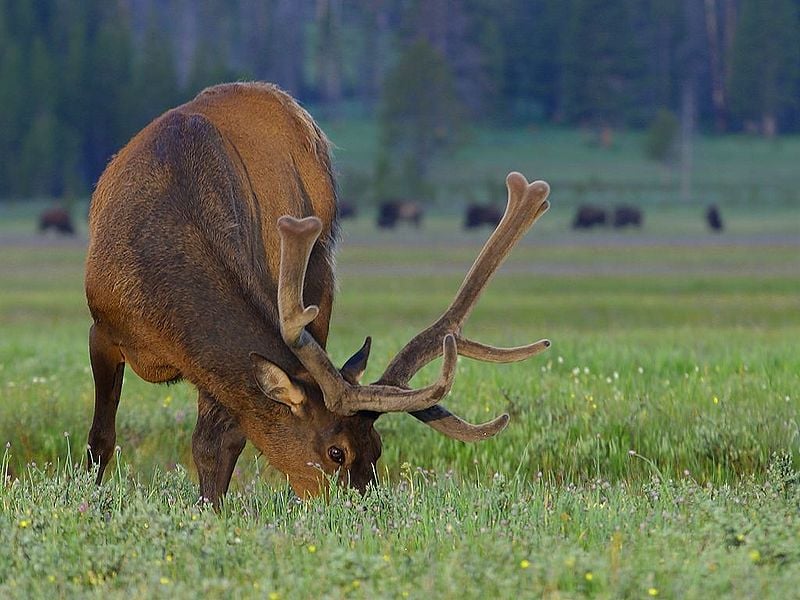According to a story filed today by the Smoky Mountain News, two young bull elk were found dead on a North Carolina dairy farm on Tuesday, January 31.
The elk were discovered on or near—the exact location appears to be a matter of dispute—the Ralph Ross and Sons Dairy Farm, an area with a known history of “human-elk conflict.”
Though elk hunting was approved by the N.C. Wildlife Resources Commission back in October of 2016, regulated seasons have not yet been implemented, and the animals will remain fully protected until “sustainability and allocation of harvest among state, federal and tribal lands are determined.”
Just last winter, the same dairy farm was in the news after seven elk were shot on the property. According to the Smoky Mountain News, no charges were filed in this particular elk shooting, but the N.C. Wildlife Commission did install a fence intended to keep the elk off the farm.
In that incident, the owner of the farm claimed he shot three elk because they were feeding on his winter wheat crops, but when officials showed up to investigate they found several more than the three reported carcasses.
Related: Lone Elk Found in South Carolina for the First Time in Centuries
In the more recent incident the two elk were found by an N.C. Wildlife Resources Commission technician. When he returned the next day, he found that the animals had been buried by members of the Ross family.
“The landowner came back and dug the bulls back up and allowed us to look them over. There was no sign, that we could tell, that the bulls had been shot,” the officer told the Smoky Mountain Times.
Though still relatively fresh, the officer claimed that the carcasses were to decomposed to produce any viable tissue samples.
Though native to the Southern Appalachian Mountains, elk were completely exterminated some two centuries ago due to loss of habitat and unregulated hunting, but reintroduced in the Great Smoky Mountain National Park in 2001 and to parts of Eastern Kentucky as early as 1997.








